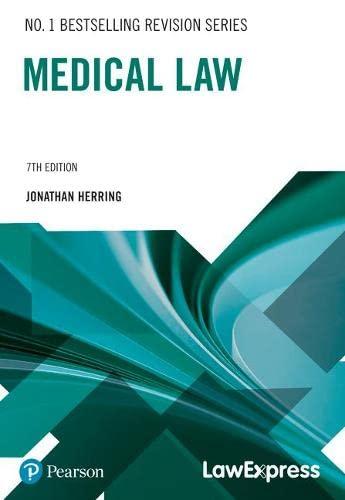Question
Table 1.3 in your text and pictured below highlights the language used in the U.S. Constitution that deals with different aspects of criminal procedure. Do

Table 1.3 in your text and pictured below highlights the language used in the U.S. Constitution that deals with different aspects of criminal procedure. Do some external research. You can use the links to the U.S. Supreme Court terms titled "Reading a Legal Citation" that is inside the additional resources in the Chapter 1 Learning Lesson Folder. Find a concluded Supreme Court case from 2015 to 2023 that deals with one of the provisions of the U.S. Constitution Dealing with Criminal Procedure (the original criminal case can be before 2015, your case just must be during the Supreme Court terms between 2015 and 2023):
- Briefly explain the criminal case. Discuss the process of how the case moved from lower courts to the U.S. Supreme Court.
- What was the reason for the appeal? Explain. Show your understanding of the issue.
- Which provision of the U.S. Constitution was the basis for the appeal?
- How did the Supreme Court rule? Explain.
- Do you agree with the opinion? Explain.

Step by Step Solution
There are 3 Steps involved in it
Step: 1

Get Instant Access to Expert-Tailored Solutions
See step-by-step solutions with expert insights and AI powered tools for academic success
Step: 2

Step: 3

Ace Your Homework with AI
Get the answers you need in no time with our AI-driven, step-by-step assistance
Get Started


